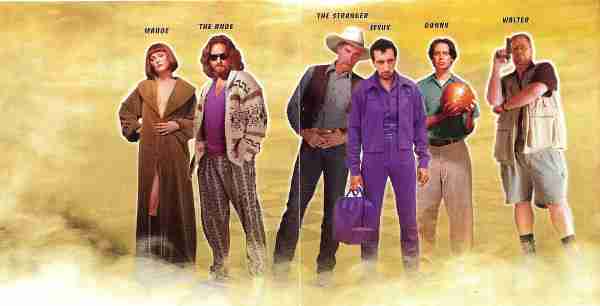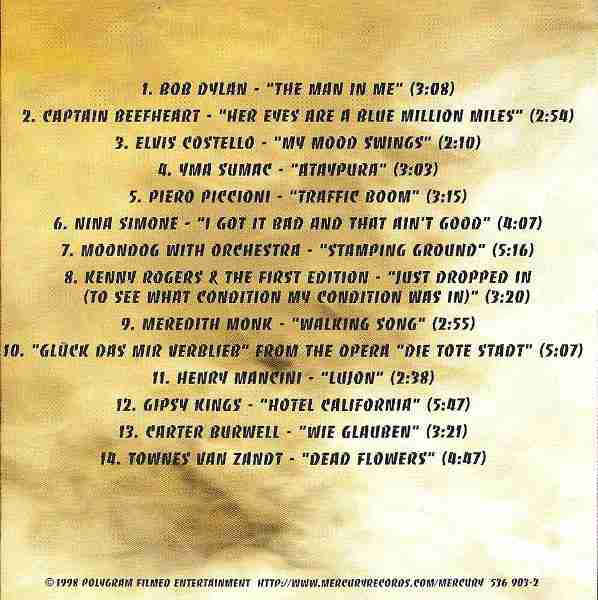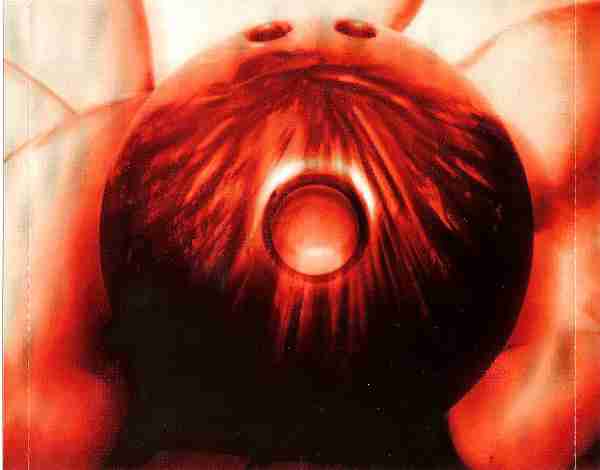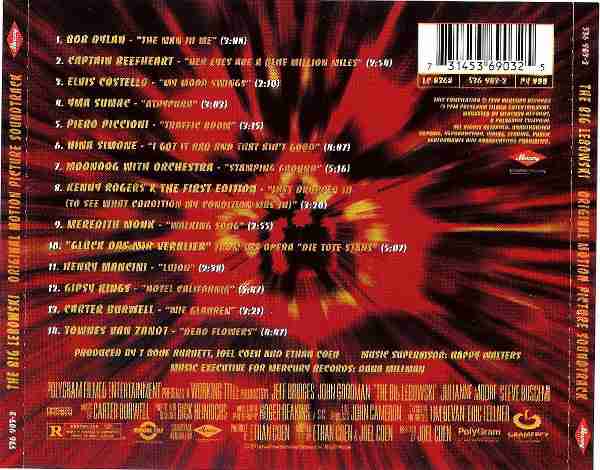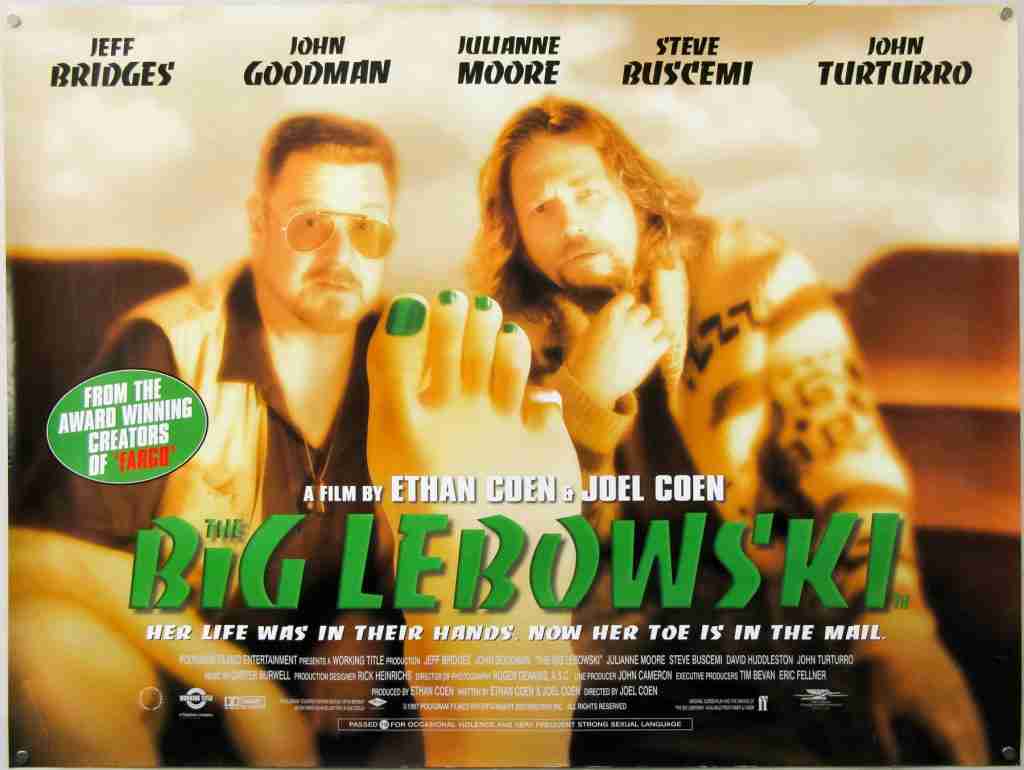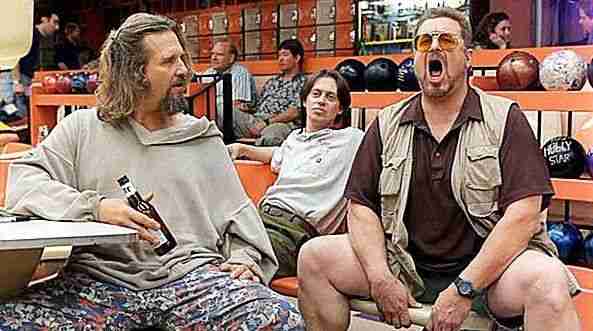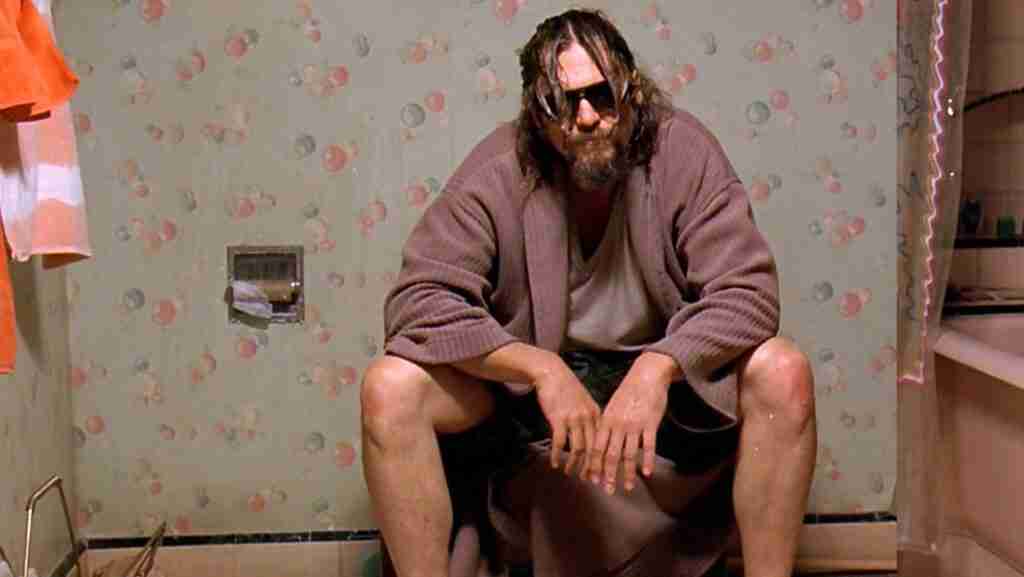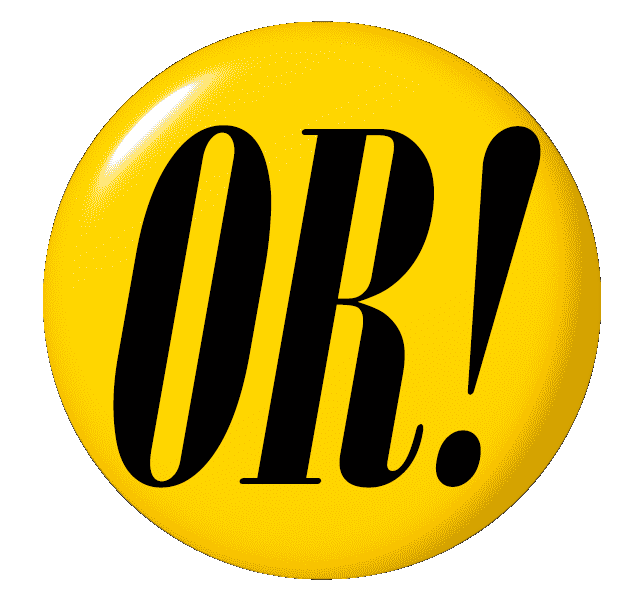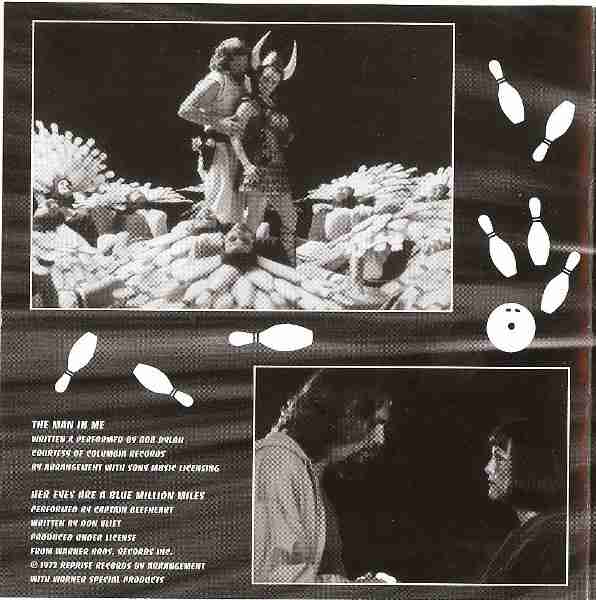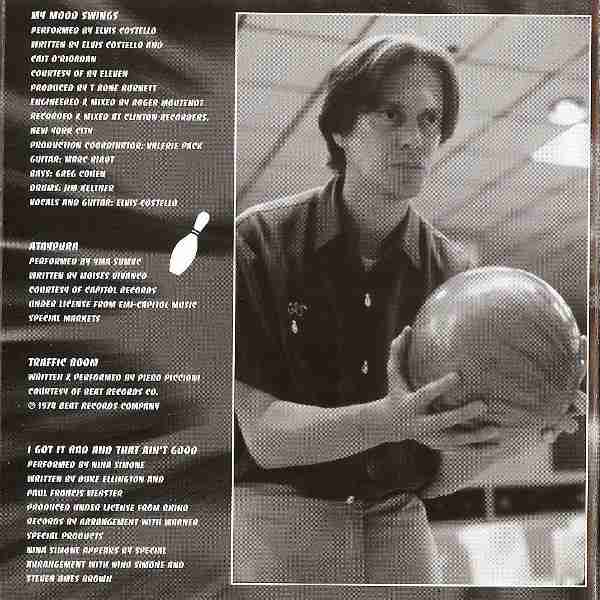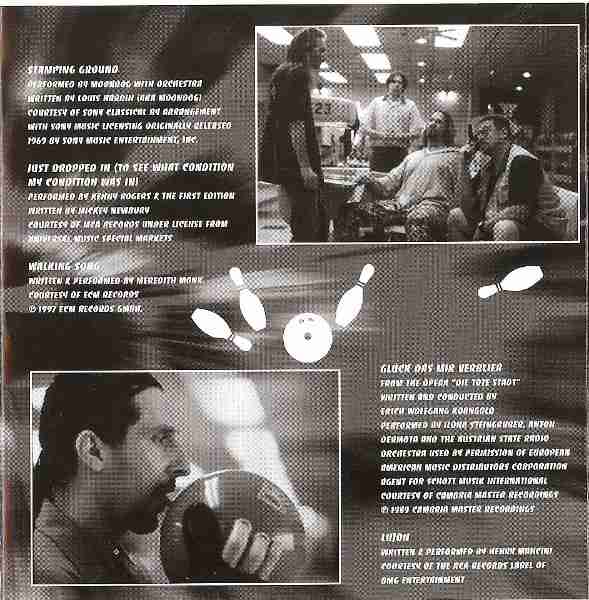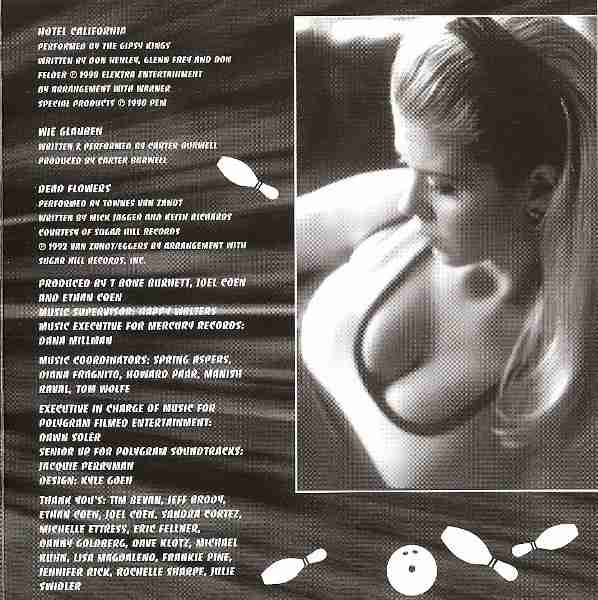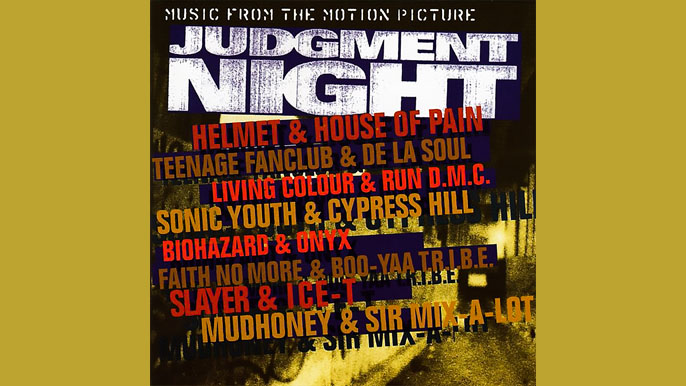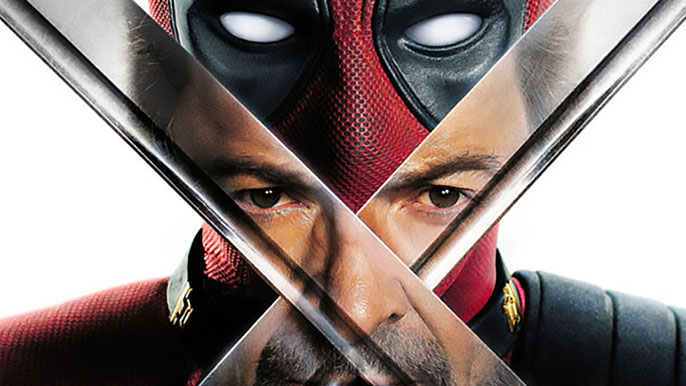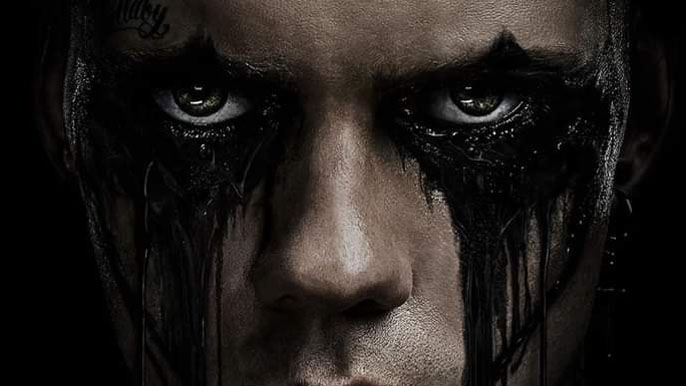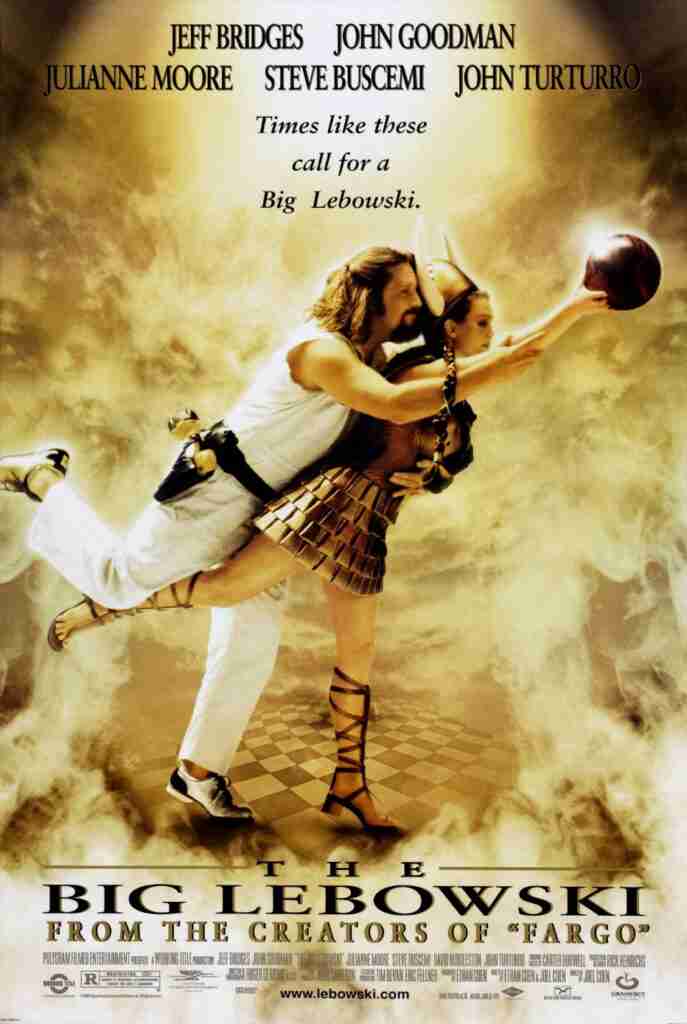
The Big Lebowski is a crime comedy film written, produced, and directed by Joel and Ethan Coen. The film was released on March 6, 1998 (United States). It stars Jeff Bridges as Jeffrey “The Dude” Lebowski, a Los Angeles slacker and avid bowler. He is assaulted as a result of mistaken identity, then learns that a millionaire also named Jeffrey Lebowski (David Huddleston) was the intended victim. The millionaire Lebowski‘s trophy wife is kidnapped, and millionaire Lebowski commissions The Dude to deliver the ransom to secure her release; the plan goes awry when the Dude‘s friend Walter Sobchak (John Goodman) schemes to keep the ransom money for himself. Sam Elliott, Julianne Moore, Steve Buscemi, John Turturro, Philip Seymour Hoffman, Tara Reid, David Thewlis, Peter Stormare, Jon Polito, and Ben Gazzara also appear, in supporting roles.
The film is loosely inspired by the work of Raymond Chandler. Joel Coen stated, “We wanted to do a Chandler kind of story, how it moves episodically, and deals with the characters trying to unravel a mystery, as well as having a hopelessly complex plot that’s ultimately unimportant.” The original score was composed by Carter Burwell, a longtime collaborator of the Coen brothers.
The Big Lebowski received mixed reviews at the time of its release. Over time, reviews have become largely positive, and the film has become a cult favorite, noted for its eccentric characters, comedic dream sequences, idiosyncratic dialogue, and eclectic soundtrack. In 2014, the film was selected for preservation in the United States National Film Registry by the Library of Congress as being “culturally, historically, or aesthetically significant”. A spin off, titled The Jesus Rolls, was released in 2020, with Turturro reprising his role and also serving as writer and director.

The original score was composed by Carter Burwell, a veteran of all the Coen Brothers’ films. While the Coens were writing the screenplay they had Kenny Rogers‘, Just Dropped In (to See What Condition My Condition Was in), the Gipsy Kings‘ cover of Hotel California, and several Creedence Clearwater Revival songs in mind. They asked T-Bone Burnett (who would later work with the Coens on O Brother, Where Art Thou? and Inside Llewyn Davis) to pick songs for the soundtrack of the film. They knew that they wanted different genres of music from different times but, as Joel remembers, (T-Bone even came up with some far-out Henry Mancini and Yma Sumac.) Burnett was able to secure songs by Kenny Rogers and the Gipsy Kings and also added tracks by Captain Beefheart, Moondog and Bob Dylan‘s The Man in Me. However, he had a tough time securing the rights to Townes Van Zandt‘s cover of the Rolling Stones‘ Dead Flowers, which plays over the film’s closing credits. Former Stones manager Allen Klein owned the rights to the song and wanted $150,000 for it. Burnett convinced Klein to watch an early cut of the film and remembers, “It got to the part where the Dude says, ‘I hate the fuckin’ Eagles, man!’ Klein stands up and says, ‘That’s it, you can have the song!’ That was beautiful.” Burnett was going to be credited on the film as Music Supervisor, but asked his credit to be Music Archivist because he “hated the notion of being a supervisor; I wouldn’t want anyone to think of me as management”.
For Joel: (The original music, as with other elements of the movie, had to echo the retro sounds of the Sixties and early Seventies). Music defines each character. For example, Tumbling Tumbleweeds by Bob Nolan was chosen for the Stranger at the time the Coens wrote the screenplay, as was Lujon by Henry Mancini for Jackie Treehorn. (The German nihilists are accompanied by techno-pop and Jeff Bridges by Creedence). So there’s a musical signature for each of them”, remarked Ethan in an interview. The character Uli Kunkel was in the German electronic band Autobahn, an homage to the band Kraftwerk. The album cover of their record Nagelbett (bed of nails) is a parody of the Kraftwerk album cover for The Man-Machine and the group name Autobahn shares the name of a Kraftwerk song and album. In the lyrics the phrase (We believe in nothing) is repeated with electronic distortion. This is a reference to Autobahn’s nihilism in the film.
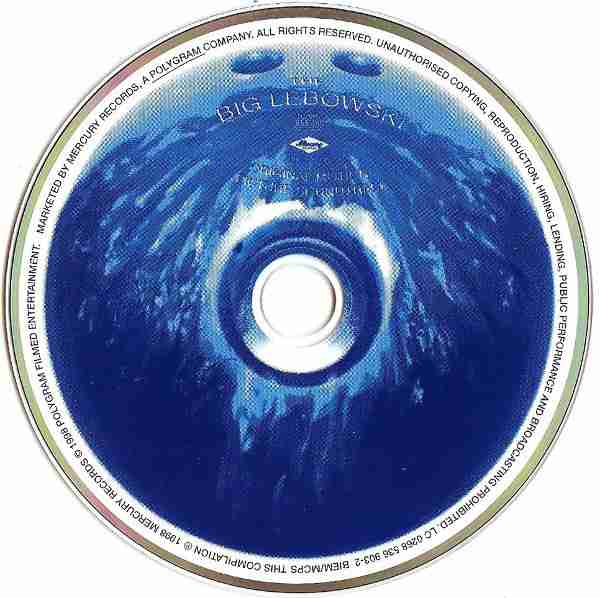
Tracklist:
- The Man in Me (Bob Dylan)
- Her Eyes Are a Blue Million Miles (Beefheart)
- My Mood Swings (Elvis Costello)
- Ataypura (Yma Sumac)
- Traffic Boom (Piero Piccioni)
- I Got It Bad & That Ain’t Good (Nina Simone)
- Stamping Ground (The track actually includes two songs, starting with Theme, which then leads to Stamping Ground) (Moondog)
- Just Dropped In (To See What Condition My Condition Was In (Kenny Rogers & The First Edition)
- Walking Song (Meredith Monk)
- Glück das mir verblieb (from Die tote Stadt ) (Ilona Steingruber, Anton Dermota and the Austrian State Radio Orchestra)
- Lujon (Henry Mancini)
- Hotel California (The Gipsy Kings)
- Technopop (Burwell)
- Dead Flowers (Townes Van Zandt)
Other music used (not on soundtrack album)
- Tumbling Tumbleweeds (Sons of the Pioneers)
- Mucha Muchacha (Esquivel)
- I Hate You (The Monks)
- Requiem in D Minor: Introitus and Lacrimosa (The Slovak Philharmonic Orchestra and Choir)
- Run Through the Jungle (Creedence Clearwater Revival)
- Behave Yourself (Booker T. & the MG’s)
- Standing on the Corner (Dean Martin)
- Tammy (Debbie Reynolds)
- We Venerate Thy Cross (The Rustavi Choir)
- Lookin’ Out My Back Door (Creedence Clearwater Revival)
- Gnomus (from Pictures at an Exhibition) Modest Mussorgsky, arranged for orchestra by Maurice Ravel.
- Oye Como Va (Santana)
- Piacere Sequence (Teo Usuelli)
- Branded Theme Song (Alan Alch and Dominic Frontiere)
- Peaceful Easy Feeling (Eagles)
- Viva Las Vegas (ZZ Top with Bunny Lebowski); and Shawn Colvin (closing credits).
- Dick on a Case (Burwell)
